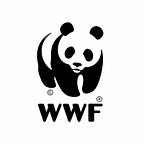The Next California: Introduction
By Julia Kurnik, director of innovation startups, WWF Markets Institute
California dominates farming of specialty produce in the US today, growing half our vegetables and more than 2/3 of our fruits and nuts. Yet this is becoming increasingly unsustainable. Water is becoming scarcer, fires are common, and increasing temperatures are threatening some crops’ ability to fruit properly. The critical task of growing our nation’s food will need to adapt and shift, but without proper planning it might promote extensive land conversion, which is harmful to the environment, and ignore or worsen racial and social inequities. The US is not alone in facing this challenge. Countries across the world have their own “California” but no one is looking for the next one.
World Wildlife Fund wants to proactively identify a solution that is good for the environment, for business, and for local communities-and that can be replicated worldwide. The Markets Institute at WWF identified the mid-Mississippi Delta and the Arkansas River Valley (“mid-Delta”) as a key region to serve as a pilot of one such possible “Next California”. Its cultivated farmland is about the same size as the farmed area in California, it has fertile soils, plentiful water, and a long history of agriculture. It is also somewhat centrally located in the Southeast of the US, providing easy access to local markets and the potential to cut down on food loss and waste for perishables if a more distributed food system was created. From a business perspective, it offers inexpensive land and labor with some large markets already present.
WWF’s Markets Institute has spent the past year working in and learning about the region. We have forged deep connections with local partners, toured numerous farms, built relationships with land-grant universities, and met with public officials to build support for specialty crop production. This work is documented in our Phase 1 report, released earlier this year.
We have a strong group of partners who are eager to work with us to secure regional production of specialty produce. This would not only take some of the pressure off California but also revitalize an economically depressed area by bringing in higher value crops and associated production and processing facilities.
Over the course of four posts on Sustainability Works, we detail our vision for The Next California in the mid-Delta region:
Originally published at https://www.worldwildlife.org.
